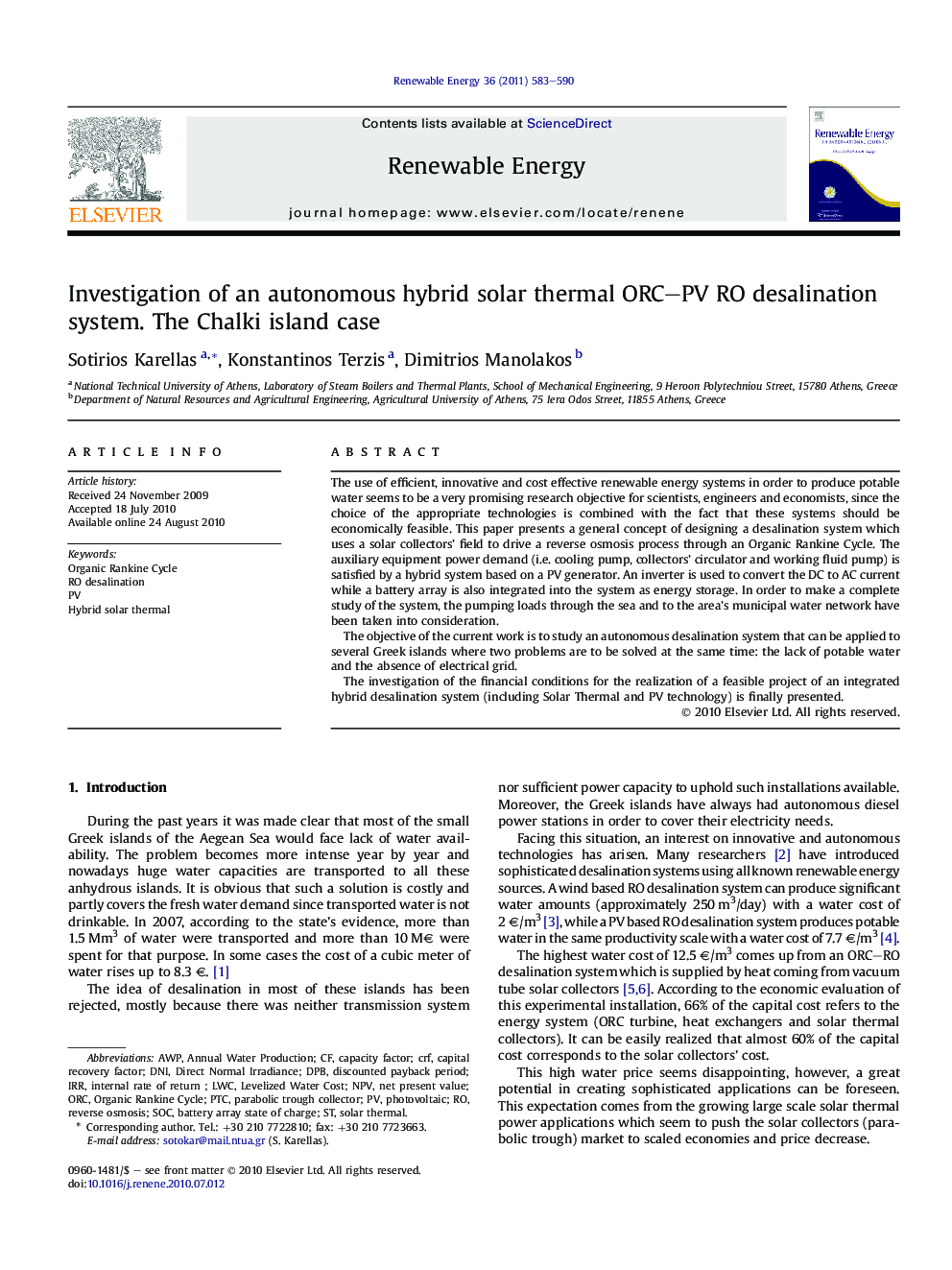| Article ID | Journal | Published Year | Pages | File Type |
|---|---|---|---|---|
| 301621 | Renewable Energy | 2011 | 8 Pages |
The use of efficient, innovative and cost effective renewable energy systems in order to produce potable water seems to be a very promising research objective for scientists, engineers and economists, since the choice of the appropriate technologies is combined with the fact that these systems should be economically feasible. This paper presents a general concept of designing a desalination system which uses a solar collectors’ field to drive a reverse osmosis process through an Organic Rankine Cycle. The auxiliary equipment power demand (i.e. cooling pump, collectors’ circulator and working fluid pump) is satisfied by a hybrid system based on a PV generator. An inverter is used to convert the DC to AC current while a battery array is also integrated into the system as energy storage. In order to make a complete study of the system, the pumping loads through the sea and to the area’s municipal water network have been taken into consideration.The objective of the current work is to study an autonomous desalination system that can be applied to several Greek islands where two problems are to be solved at the same time: the lack of potable water and the absence of electrical grid.The investigation of the financial conditions for the realization of a feasible project of an integrated hybrid desalination system (including Solar Thermal and PV technology) is finally presented.
